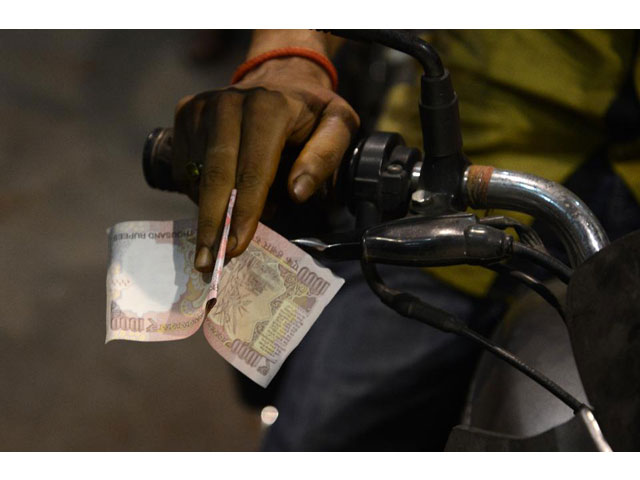
A recent survey by Transparency International (TI) claims India has the highest bribery rate among 17 countries surveyed in the Asia-Pacific region. Nearly seven in 10 people who accessed public services in the country had paid a bribe.
For its report titled "People and Corruption: Asia Pacific", TI spoke to nearly 22,000 people in the countries about their recent experience with corruption.
These included India, Pakistan, China, Sri Lanka, Australia, Taiwan, Japan, Hong Kong, Thailand, China, Myanmar, South Korea, Cambodia, Indonesia, Mongolia, Malaysia, Vietnam.
35 per cent Pakistanis believe corruption has increased: Transparency International
It said that approximately 900 million people across these countries were estimated to have paid a bribe to access public services.
The report revealed that India had the highest bribery rate – 58 per cent – for access to public schools and 59 per cent for healthcare. Comparatively, these numbers for Pakistan and China for public schools were 9 per cent and 29 per cent, respectively.
Similarly, the numbers for Pakistan and China for healthcare remained 11 per cent and 18 per cent respectively.
While Pakistani citizens were the most likely to be asked for bribes in law and order institutions, around seven in 10, while the police bribery rate in India was 54 per cent and just 12 per cent for China.
Transparency International Index: Pakistan moves down nine places in graft ranking
Pakistan ended the year 2016 with a score of 32 on the Transparency Index report issued earlier this year, two points higher than the previous year.
"Governments must do more to deliver on their anti-corruption commitments. It's time to stop talking and act. Millions of people are forced to pay bribes for public services and it is the poor who are most vulnerable," said the chairman of the regulatory organisation, Jose Ugaz.
"Without proper law enforcement corruption thrives. Bribery is not a small crime, it takes food off the table, it prevents education, it impedes proper healthcare and ultimately it can kill."
This article originally appeared on Forbes

1732865144-0/BeFunky-collage-(5)1732865144-0-165x106.webp)
1723202475-0/BeFunky-collage-(45)1723202475-0-165x106.webp)


1732865927-0/Untitled-design-(74)1732865927-0-270x192.webp)











COMMENTS (5)
Comments are moderated and generally will be posted if they are on-topic and not abusive.
For more information, please see our Comments FAQ